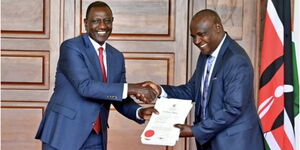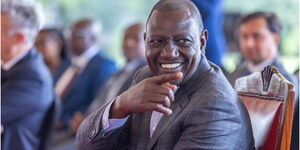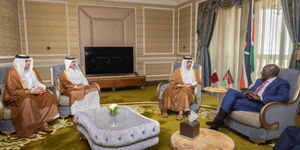Kenyans are set to face a fall in fuel and electricity prices after leading Oil Producing and Exporting Country (OPEC) Saudi Arabia and Russia, a non-OPEC leader fell out and kickstarted an oil price war.
The international benchmark, Brent, prices dipped by 25 per cent to an average of at $33.90 a barrel.
The new prices will affect Kenya's prices as the Energy and Petroleum Regulatory Authority reviews oil prices in mid- April 2020.
Saudi Arabia cut down its oil prices in early March, seeking to ramp up production for April, after the breakdown in talks with Russia, cutting its official selling prices for April between $6 and $8 a barrel.
A dip in fuel prices will also affect electricity prices as the energy regulator will also review fuel levy on power bills.
"Oil is a cause of inflation as it affects everyone and every key player in the economy, from farmers to industrialists.
EPR will review the prices in line with the Sudi Arabia - Russia war in April and not in March. The drop is beneficial for Kenya as the fuel levy will also be adjusted hence reducing electricity prices," Nicholas a financial analyst informed Kenyans.co.ke.
On Friday, February 14, the Energy and Petroleum Regulatory announced an increase in petrol and diesel prices, as kerosene price increased.
Super petrol and diesel increased by Kshs 2.67 per litre and Kshs 2.13 per litre respectively while kerosene decreases by Kshs 1.26 per litre.
With these new changes, super petrol, diesel and kerosene prices retailed at Ksh 113.87, Ksh 104.45 and Ksh 102.69 respectively.
The agency also announced that it had adjusted electricity prices. This is after the Kenyan shilling stabilised against the dollar in expenditure related to the power sector, according to a financial analyst.
EPRA reduced foreign exchange fluctuation by minus -0.89 Kenya cents per kWh (Kilowatts per hour) and increased fuel energy cost charge by 250 Kenya cents per kWh.












